
Recently Viewed
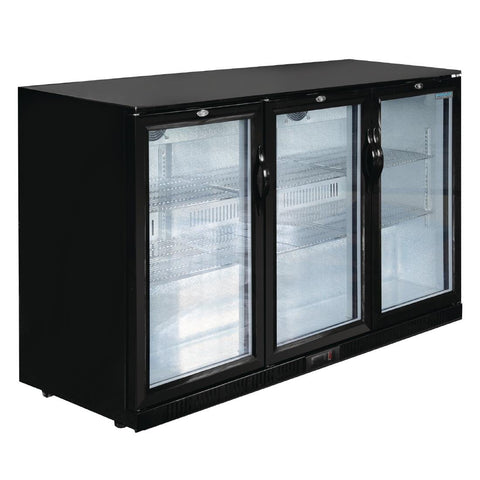

 Polar G-Series Under Counter Back Bar Cooler with Hinged Doors 320Ltr - GL014-A
Polar G-Series Under Counter Back Bar Cooler with Hinged Doors 320Ltr - GL014-A
1250(W) x 850(H) x 520(D)mm
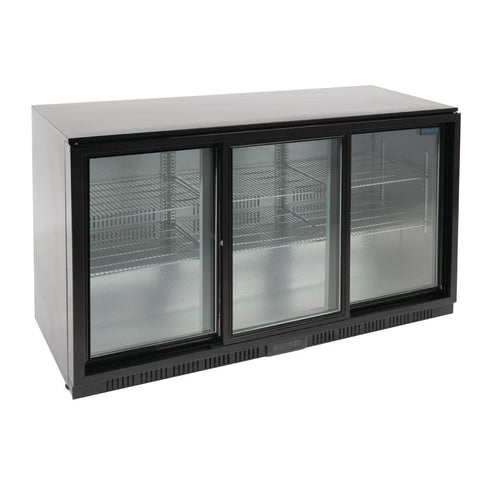

 Polar G-Series Under Counter Back Bar Cooler with Sliding Doors 320Ltr - GL013-A
Polar G-Series Under Counter Back Bar Cooler with Sliding Doors 320Ltr - GL013-A
1250(W) x 850(H) x 520(D)mm
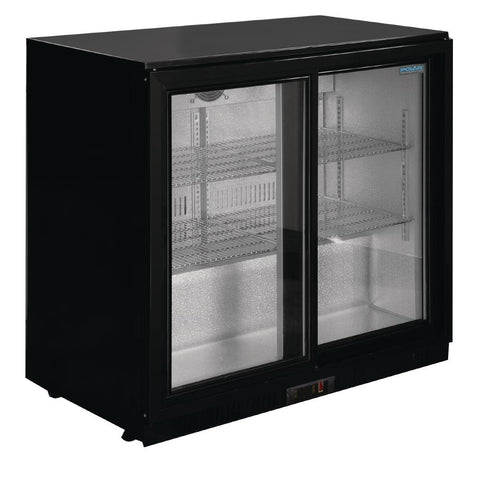

 Polar G-Series Under Counter Back Bar Cooler with Sliding Doors 198Ltr - GL010-A
Polar G-Series Under Counter Back Bar Cooler with Sliding Doors 198Ltr - GL010-A
900(W) x 850(H) x 520(D)mm
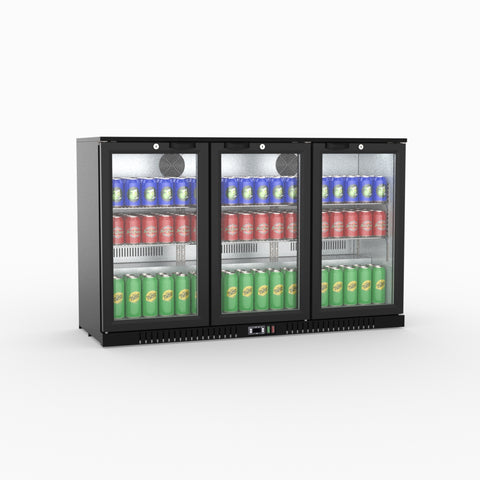

 Thermaster Under Bench Three Door Bar Cooler LG-330HC
Thermaster Under Bench Three Door Bar Cooler LG-330HC
1350(W) x 530(D) x 835(H)mm
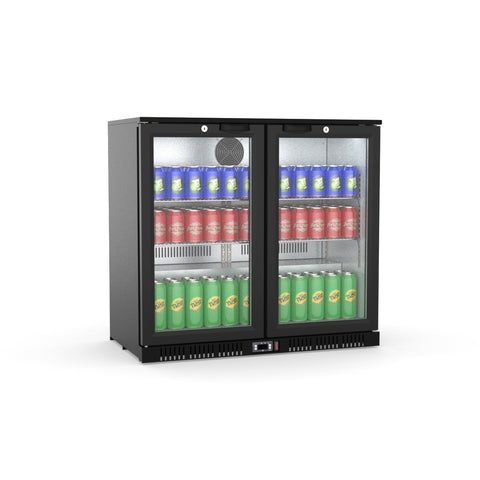

 Thermaster Under Bench Two Door Bar Cooler LG-208HC
Thermaster Under Bench Two Door Bar Cooler LG-208HC
900(W) x 530(D) x 835(H)mm
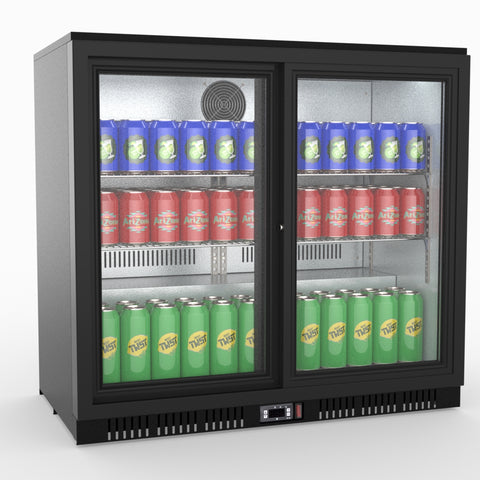

 Thermaster Under Bench Two Sliding Door Bar Cooler LG-208SC
Thermaster Under Bench Two Sliding Door Bar Cooler LG-208SC
900(W) x 530(D) x 835(H)mm
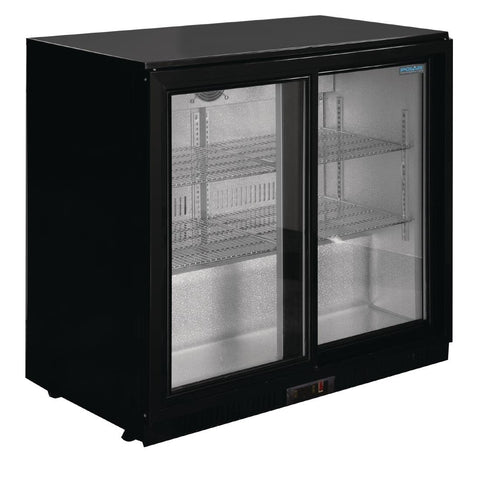

 Polar G Series Counter Back Bar Cooler with Sliding Doors 208Ltr - GL003-A
Polar G Series Counter Back Bar Cooler with Sliding Doors 208Ltr - GL003-A
900(W) x 900(H) x 520(D)mm
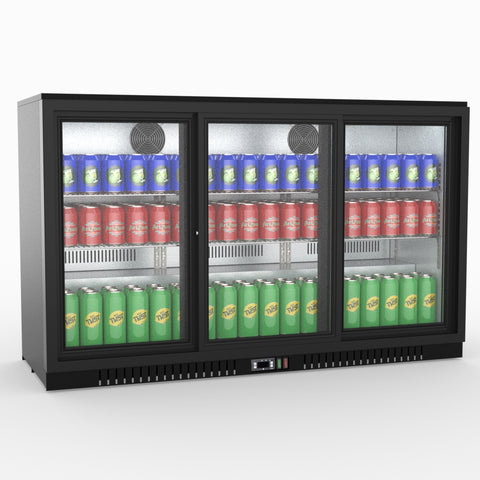

 Thermaster Under Bench Three Sliding Door Bar Cooler LG-330SC
Thermaster Under Bench Three Sliding Door Bar Cooler LG-330SC
1350(W) x 530(D) x 835(H)mm
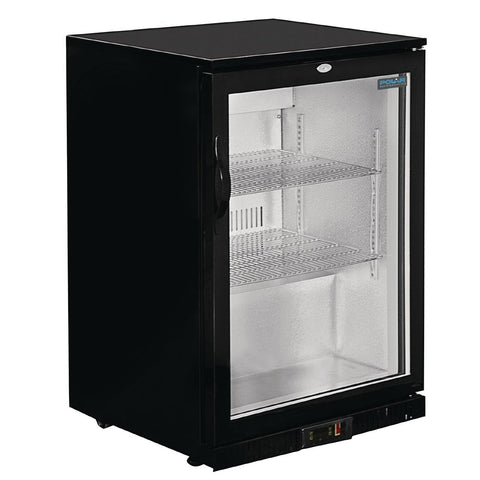

 Polar G-Series Under Counter Back Bar Cooler with Hinged Door 128Ltr - GL011-A
Polar G-Series Under Counter Back Bar Cooler with Hinged Door 128Ltr - GL011-A
600(W) x 850(H) x 520(D)mm
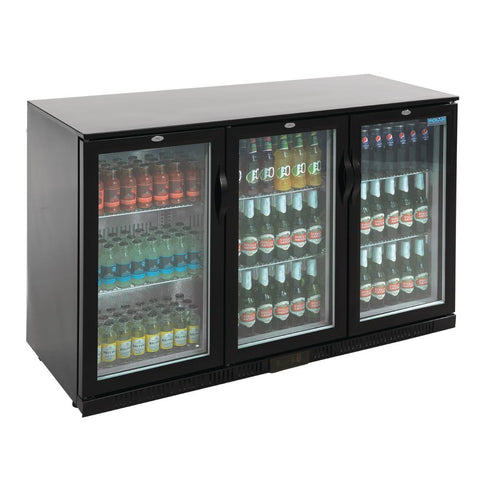

 Polar G-Series Counter Back Bar Cooler with Hinged Doors 330Ltr - GL004-A
Polar G-Series Counter Back Bar Cooler with Hinged Doors 330Ltr - GL004-A
1250(W) x 900(H) x 520(D)mm
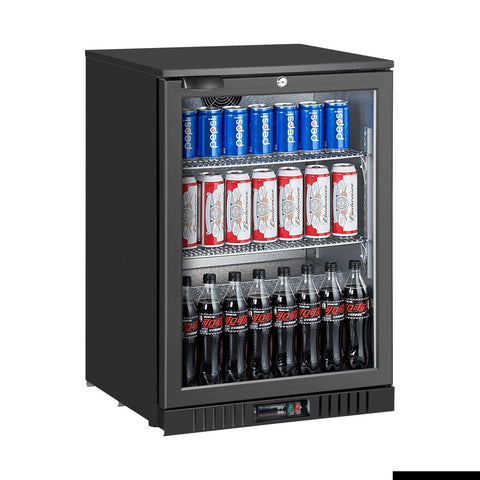

 Thermaster Under Bench Single Door Bar Cooler LG-138HC
Thermaster Under Bench Single Door Bar Cooler LG-138HC
600(W) x 530(D) x 835(H)mm
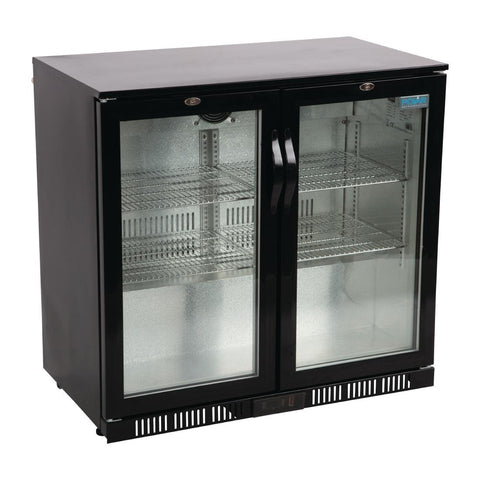

 Polar G-Series Under Counter Back Bar Cooler with Hinged Doors 198Ltr - GL012-A
Polar G-Series Under Counter Back Bar Cooler with Hinged Doors 198Ltr - GL012-A
900(W) x 850(H) x 520(D)mm
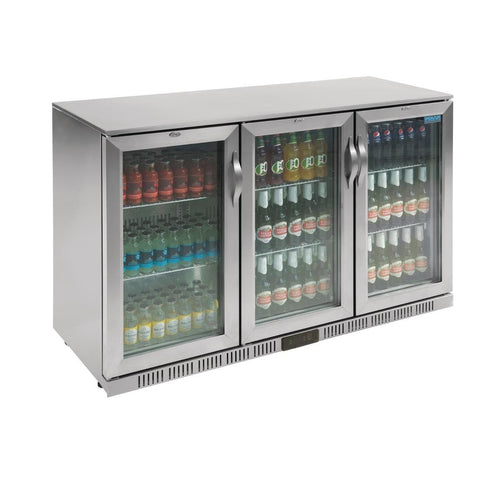

 Polar G-Series Counter Back Bar Cooler with Hinged Doors Stainless Steel 330Ltr - GL009-A
Polar G-Series Counter Back Bar Cooler with Hinged Doors Stainless Steel 330Ltr - GL009-A
1250(W) x 900(H) x 520(D)mm
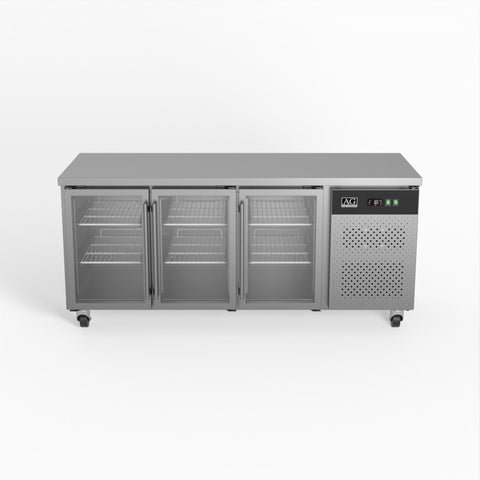

 AG Three Door Commercial Glass Door Worktop / Under Bench Display Fridge 700mm Depth GNX3100TNG
AG Three Door Commercial Glass Door Worktop / Under Bench Display Fridge 700mm Depth GNX3100TNG
1795(W) x 700(D) x 850(H)mm
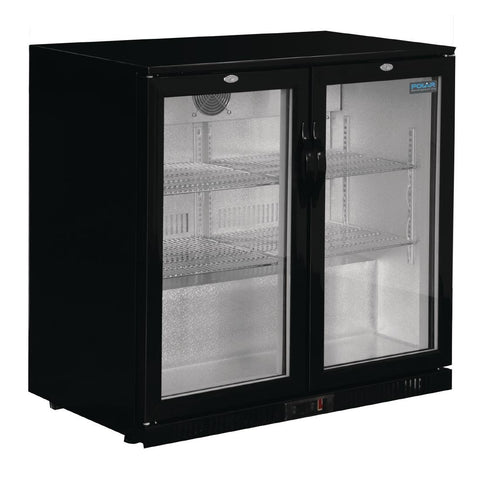

 Polar G-Series Counter Back Bar Cooler with Hinged Doors 208Ltr - GL002-A
Polar G-Series Counter Back Bar Cooler with Hinged Doors 208Ltr - GL002-A
900(W) x 900(H) x 520(D)mm
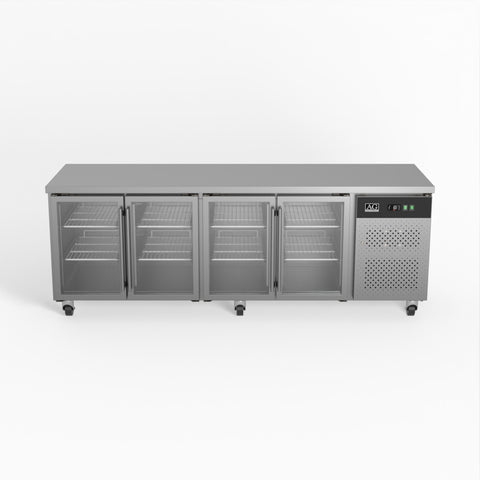

 AG 4 Glass Door Commercial Worktop / Under Bench Fridge GNX4100TNG
AG 4 Glass Door Commercial Worktop / Under Bench Fridge GNX4100TNG
2230(W) x 700(D) x 850(H)mm
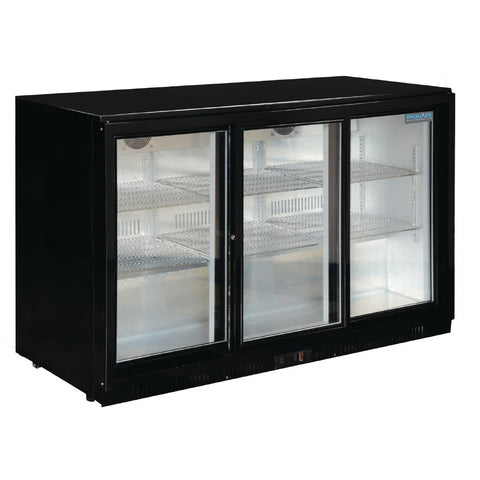

 Polar G-Series Counter Back Bar Cooler with Sliding Doors 330Ltr - GL006-A
Polar G-Series Counter Back Bar Cooler with Sliding Doors 330Ltr - GL006-A
1250(W) x 900(H) x 520(D)mm
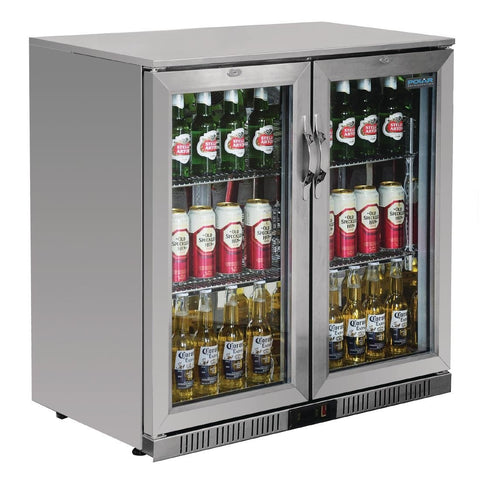

 Polar G-Series Counter Back Bar Cooler with Hinged Doors Stainless Steel 208Ltr - GL008-A
Polar G-Series Counter Back Bar Cooler with Hinged Doors Stainless Steel 208Ltr - GL008-A
900(W) x 900(H) x 520(D)mm
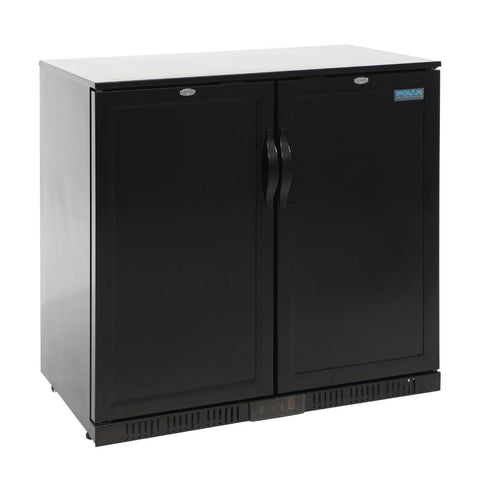

 Polar G-Series Counter Back Bar Cooler with Solid Doors 208Ltr - GL016-A
Polar G-Series Counter Back Bar Cooler with Solid Doors 208Ltr - GL016-A
900(W) x 900(H) x 520(D)mm
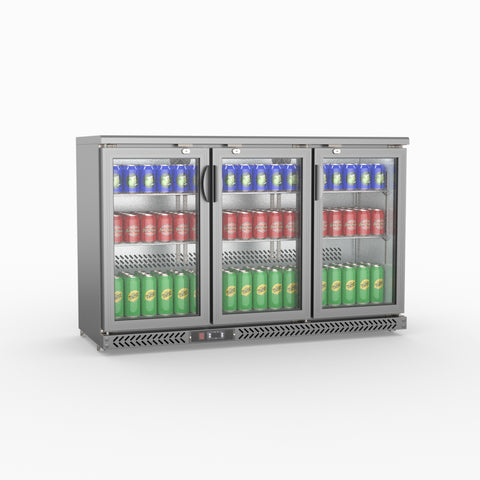

 Thermaster Three Door Stainless Steel Bar Cooler SC316SG
Thermaster Three Door Stainless Steel Bar Cooler SC316SG
1350(W) x 535(D) x 900(H)mm
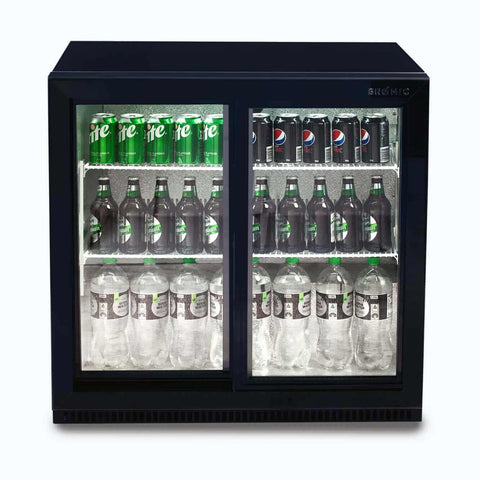

 Bromic Back Bar Fridge - 190L - 2 Doors - Sliding BB0200GDS-NR-1
Bromic Back Bar Fridge - 190L - 2 Doors - Sliding BB0200GDS-NR-1
865(W) x 520(D) x 870(H)mm
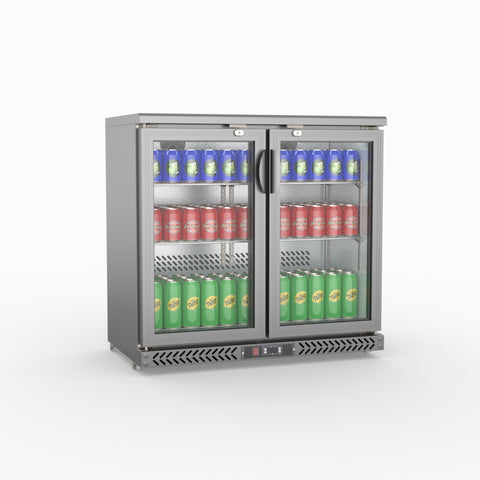

 Thermaster Two Door Stainless Steel Bar Cooler SC248SG
Thermaster Two Door Stainless Steel Bar Cooler SC248SG
900(W) x 535(D) x 900(H)mm
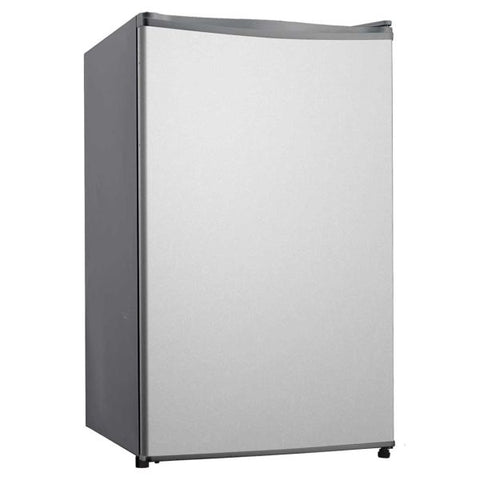

 Thermaster Bar Fridge DC-122Q
Thermaster Bar Fridge DC-122Q
524(W) x 532(D) x 831(H)mm
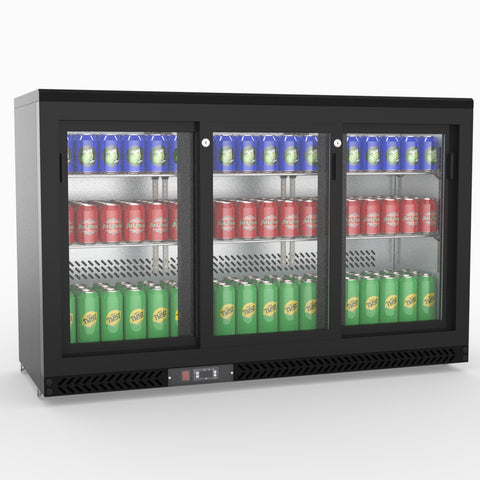

 Thermaster Three Sliding Door Bar Cooler SC316SD
Thermaster Three Sliding Door Bar Cooler SC316SD
1350(W) x 535(D) x 900(H)mm
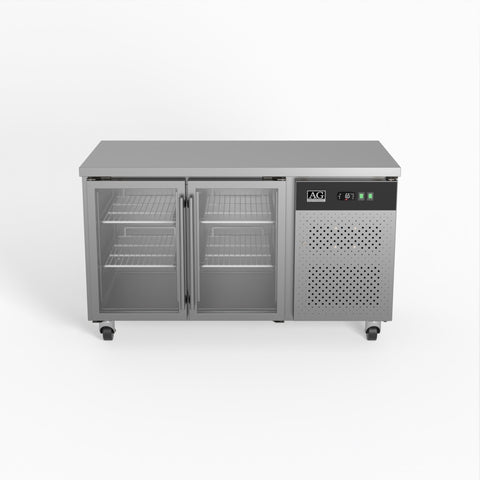

 AG Two Door Commercial Glass Door Worktop / Under Bench Display Fridge 700mm Depth GNX2100TNG
AG Two Door Commercial Glass Door Worktop / Under Bench Display Fridge 700mm Depth GNX2100TNG
1360(W) x 700(D) x 850(H)mm
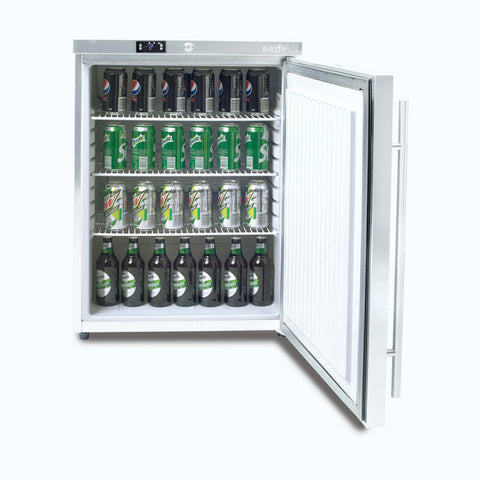

 Bromic Under Bench Fridge - 138L - 1 Door - Stainless Steel UBC0140SD-NR
Bromic Under Bench Fridge - 138L - 1 Door - Stainless Steel UBC0140SD-NR
598(W) x 642(D) x 824(H)mm
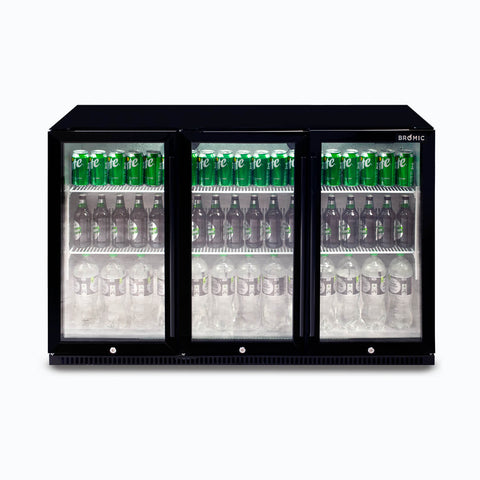

 Bromic Back Bar Fridge - 307L - 3 Doors - Hinged BB0330GD-NR-1
Bromic Back Bar Fridge - 307L - 3 Doors - Hinged BB0330GD-NR-1
1250(W) x 542(D) x 870(H)mm
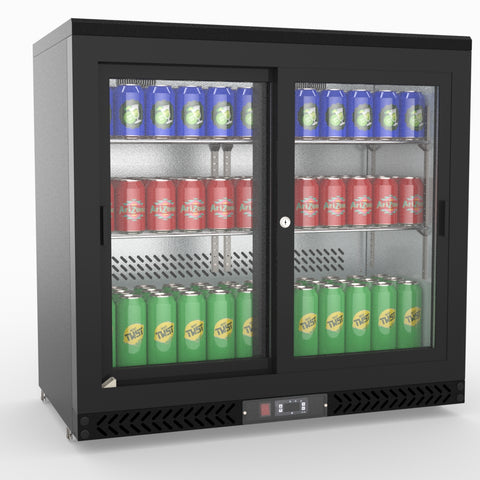

 Thermaster Double Sliding Door Drink Cooler SC248SD
Thermaster Double Sliding Door Drink Cooler SC248SD
900(W) x 535(D) x 900(H)mm
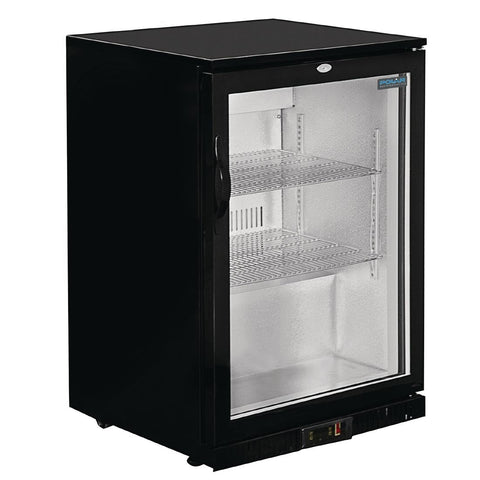

 Polar G-Series Counter Back Bar Cooler with Hinged Door 138Ltr - GL001-A
Polar G-Series Counter Back Bar Cooler with Hinged Door 138Ltr - GL001-A
600(W) x 900(H) x 520(D)mm
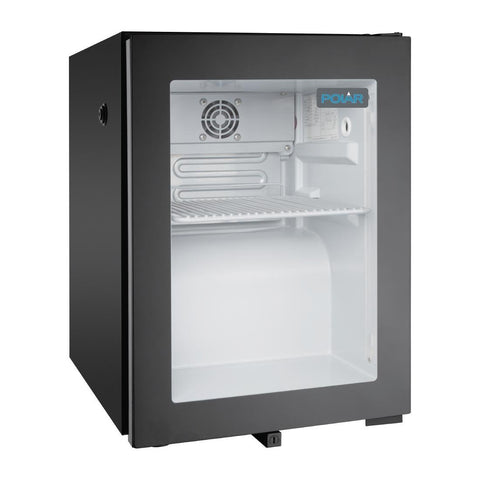

 Polar G-Series Countertop Milk Fridge 20Ltr - DB109-A
Polar G-Series Countertop Milk Fridge 20Ltr - DB109-A
312(W) x 455(H) x 378(D)mm
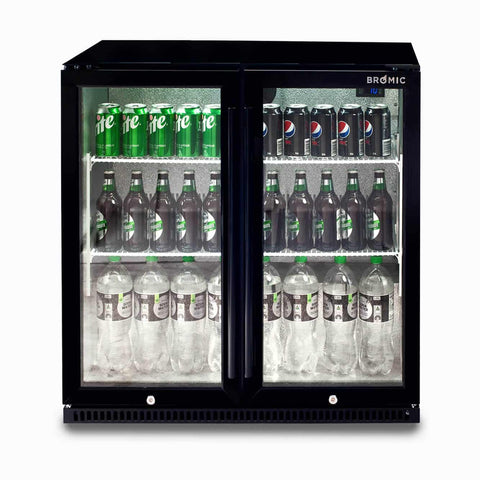

 Bromic Back Bar Fridge - 190L - 2 Doors - Hinged BB0200GD-NR-1
Bromic Back Bar Fridge - 190L - 2 Doors - Hinged BB0200GD-NR-1
865(W) x 542(D) x 870(H)mm
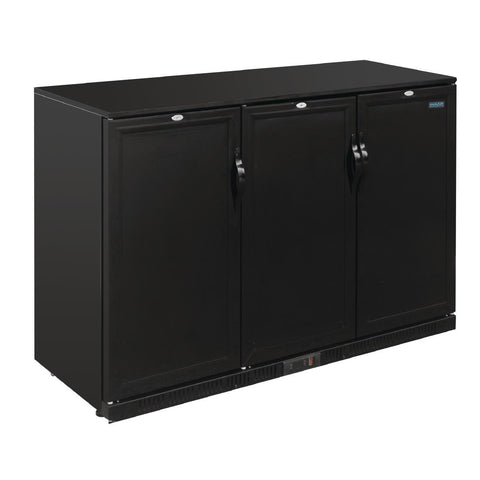

 Polar G-Series 900mm Triple Solid Door Back Bar Cooler in Black 330Ltr - GL017-A
Polar G-Series 900mm Triple Solid Door Back Bar Cooler in Black 330Ltr - GL017-A
1250(W) x 900(H) x 520(D)mm
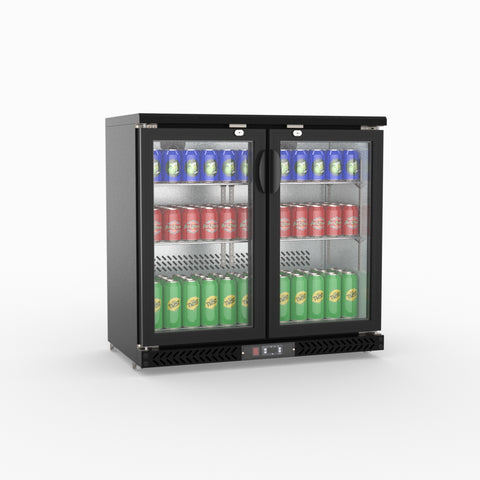

 Thermaster Two Door Drink Cooler SC248G
Thermaster Two Door Drink Cooler SC248G
900(W) x 535(D) x 900(H)mm
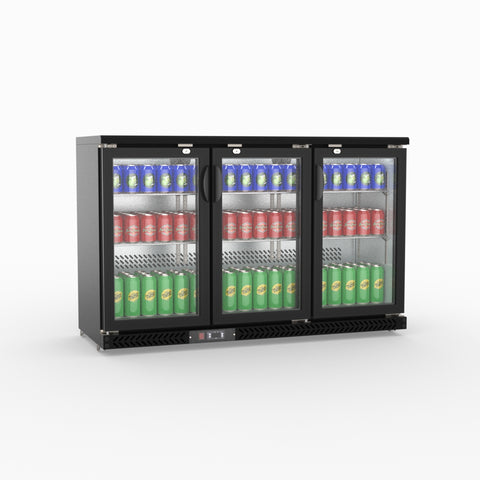

 Thermaster Three Door Drink Cooler SC316G
Thermaster Three Door Drink Cooler SC316G
1350(W) x 535(D) x 900(H)mm
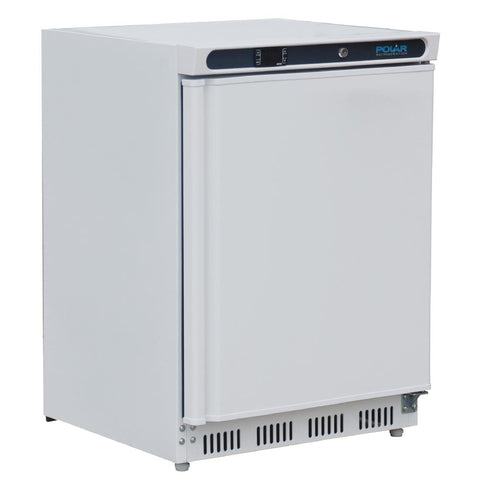

 Polar C-Series Under Bench Fridge White 150Ltr - CD610-A
Polar C-Series Under Bench Fridge White 150Ltr - CD610-A
600(W) x 870(H) x 620(D)mm


 Bromic Back Bar Fridge - 307L - 3 Doors - Sliding BB0330GDS-NR-1
Bromic Back Bar Fridge - 307L - 3 Doors - Sliding BB0330GDS-NR-1
1250(W) x 520(D) x 870(H)mm
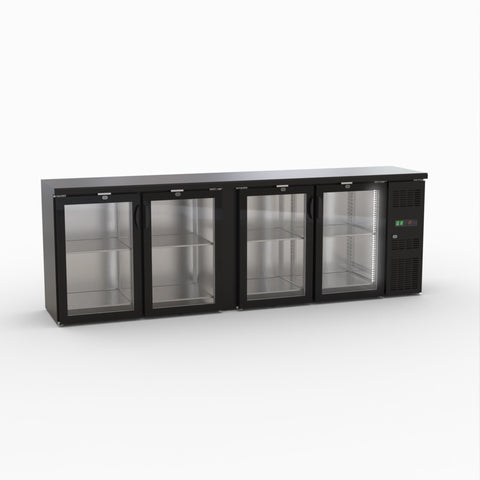

 Thermaster Four Door Drink Cooler BC4100G
Thermaster Four Door Drink Cooler BC4100G
2542(W) x 513(D) x 860(H)mm
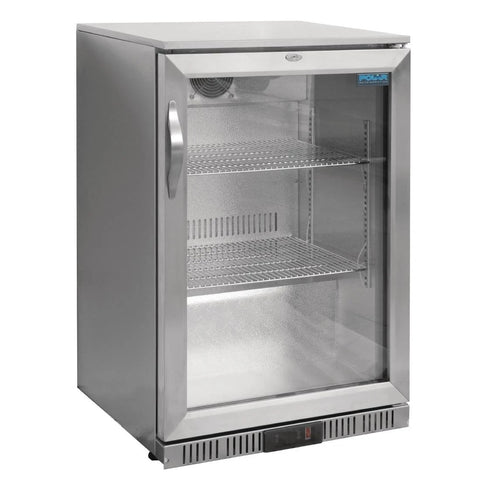

 Polar G-Series Counter Back Bar Cooler with Hinged Door Stainless Steel 138Ltr - GL007-A
Polar G-Series Counter Back Bar Cooler with Hinged Door Stainless Steel 138Ltr - GL007-A
600(W) x 900(H) x 520(D)mm

 Skope HB85 1 Glass Door Compact Display Fridge 82L - HB85
Skope HB85 1 Glass Door Compact Display Fridge 82L - HB85
450(W) x 745(H) x 510(D)mm
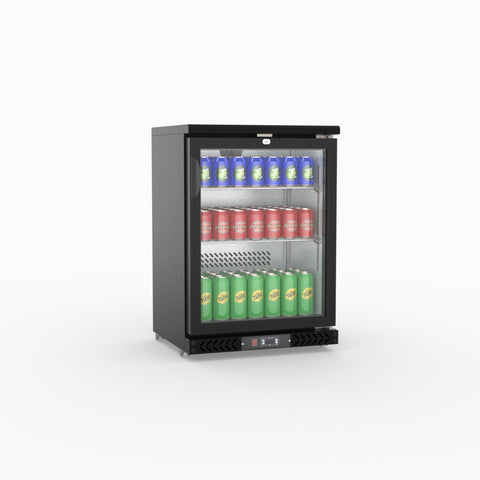

 Thermaster Single Door Drink Cooler SC148G
Thermaster Single Door Drink Cooler SC148G
600(W) x 535(D) x 900(H)mm
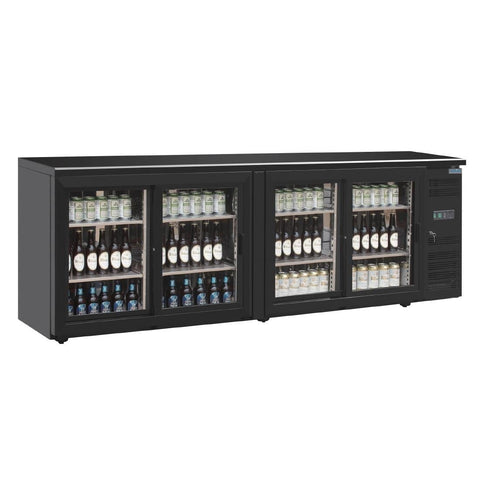

 Polar U-Series Back Bar Display Cooler Four Door - CS103-A
Polar U-Series Back Bar Display Cooler Four Door - CS103-A
2542(W) x 860(H) x 513(D)mm

 Thermaster Stainless Steel Triple Glass Door Workbench Fridge TL1800TNG-3D
Thermaster Stainless Steel Triple Glass Door Workbench Fridge TL1800TNG-3D
1800(W) x 700(D) x 850(H)mm
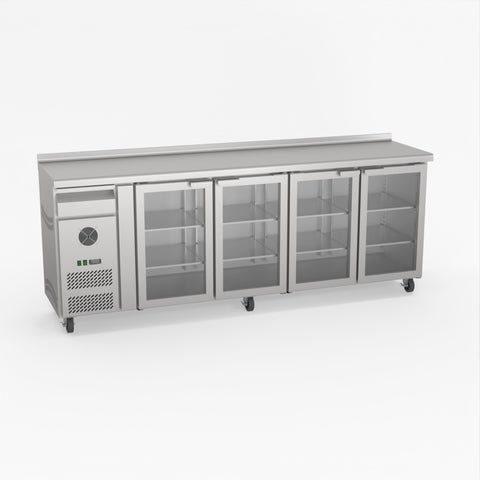

 Thermaster Tropicalised Four Door Bar Fridge CM25G
Thermaster Tropicalised Four Door Bar Fridge CM25G
2505(W) x 600(D) x 1080(H)mm

 Anvil Fridge Undercounter Glass Door - FBCG2202
Anvil Fridge Undercounter Glass Door - FBCG2202
598(W) x 828(H) x 679(D)mm
598(W) x 838(H) x 679(D)mm
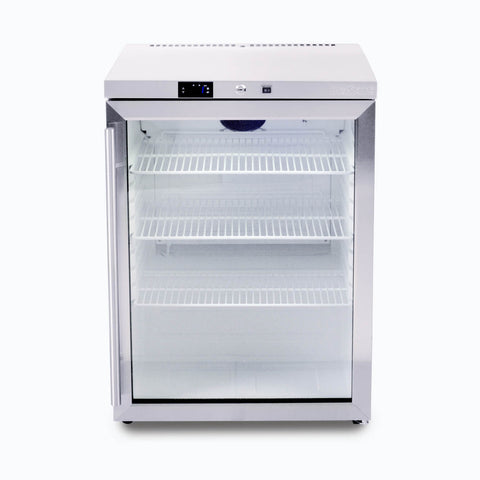

 Bromic Under Bench Display Fridge - 138L - 1 Door - Glass UBC0140GD-NR
Bromic Under Bench Display Fridge - 138L - 1 Door - Glass UBC0140GD-NR
598(W) x 642(D) x 824(H)mm
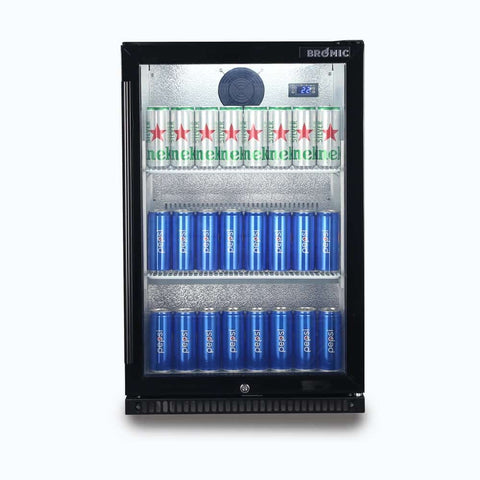

 Bromic Back Bar Fridge - 118L - 1 Door - Hinged BB0120GD-NR-1
Bromic Back Bar Fridge - 118L - 1 Door - Hinged BB0120GD-NR-1
555(W) x 542(D) x 870(H)mm

 Thermaster 4 Glass Door Gastronorm Bench Fridge GN4100TNG
Thermaster 4 Glass Door Gastronorm Bench Fridge GN4100TNG
2230(W) x 700(D) x 850(H)mm
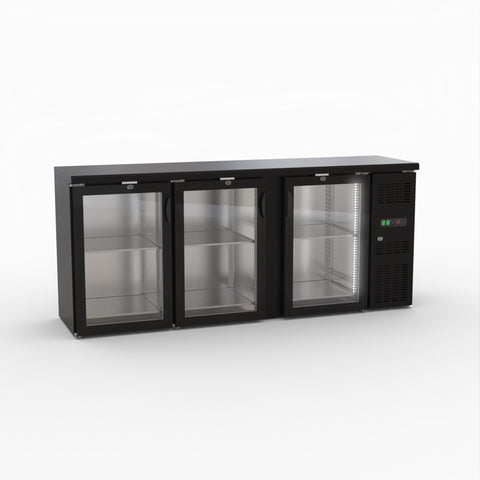

 Thermaster Three Door Drink Cooler BC3100G
Thermaster Three Door Drink Cooler BC3100G
2002(W) x 513(D) x 885(H)mm
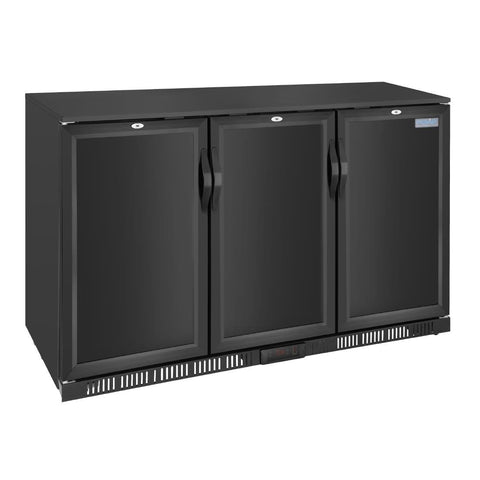

 Polar G-series 850mm Triple Door Back Bar Cooler Solid Door 320 Ltr - GE999-A
Polar G-series 850mm Triple Door Back Bar Cooler Solid Door 320 Ltr - GE999-A
1250(W) x 850(H) x 520(D)mm
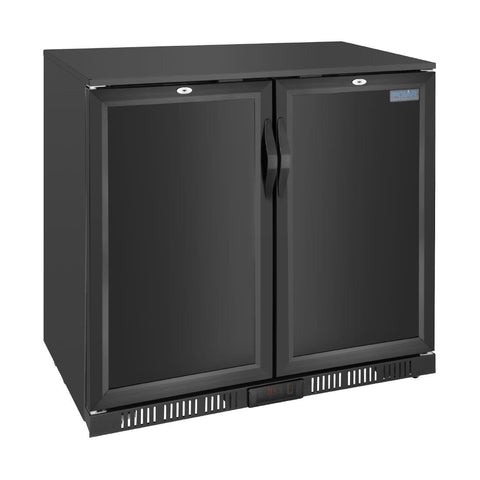

 Polar G-series 850mm Double Door Back Bar Cooler Solid Door 198 Ltr - GE998-A
Polar G-series 850mm Double Door Back Bar Cooler Solid Door 198 Ltr - GE998-A
900(W) x 850(H) x 520(D)mm

 Thermaster Glass Door Workbench Fridge TL1500TNG
Thermaster Glass Door Workbench Fridge TL1500TNG
1500(W) x 700(D) x 850(H)mm
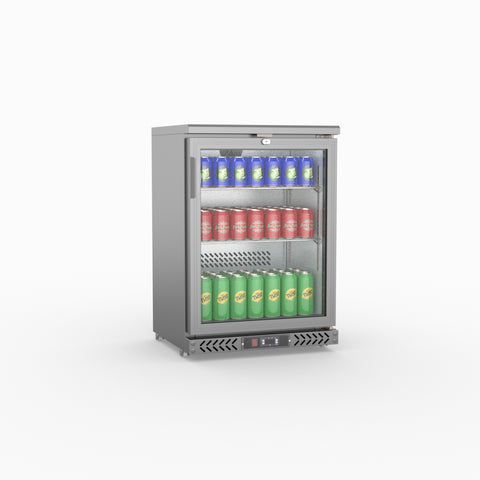

 Thermaster Single Door Stainless Steel Bar Cooler SC148SG
Thermaster Single Door Stainless Steel Bar Cooler SC148SG
600(W) x 535(D) x 900(H)mm
Commercial bar fridges are essential appliances for Australian business owners looking to ensure efficient storage and cooling of beverages in a commercial setting. These fridges are designed with features such as adjustable shelves, glass doors for easy visibility, and efficient cooling systems to maintain the perfect temperature for drinks.
One of the key benefits of commercial bar fridges is their value for money, offering durability and energy efficiency, which can result in long-term cost savings for businesses. These fridges are ideal for use in various commercial kitchen settings, including bars, restaurants, hotels, and cafes. They are commonly used to store and display a range of beverages such as beer, wine, soft drinks, and water, ensuring quick access and attractive presentation to customers.
Bar fridges are also perfect for home bars and for storing your favourite beverages. Available in 1, 2, and 3-door models in both Sliding and Hinged variants, bar fridges are also available in either black or stainless steel finishes, so no matter your available space, budget, or configuration, we have a model to suit!
The power consumption of a commercial bar fridge can vary depending on the size, brand, and specific model. Typically, they range from 100 to 800 watts. Check the manufacturer’s specifications for exact details.
The operating cost depends on size, energy efficiency, and usage. On average, a commercial display bar fridge costs between $200 to $400 per year to run.
The ideal temperature is between 1 to 3°C (34 to 38°F) to keep beverages cold without freezing.
Depending on room temperature and initial fridge conditions, most commercial bar fridges take 1 to 3 hours to cool down properly.
Sizes vary, but most range from 24-30 inches wide, 24-30 inches deep, and 34-40 inches high.
Yes, proper ventilation prevents overheating. Leave at least 2-4 inches of clearance around the fridge for airflow.
Yes, but ensure it’s placed in a covered area and is rated for outdoor use to prevent damage from weather conditions.
Yes! We offer both modern stainless steel and retro-style bar fridges to suit different aesthetics.